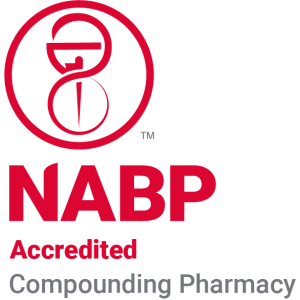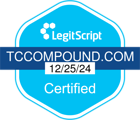There is no one-size-fits-all approach to pain management with autoimmune diseases and conditions. However, Low Dose Naltrexone (LDN) is a non-opioid compounded medication that may be an option for patients who are having difficulty with managing pain.
There is a wide variety of autoimmune diseases, which may be chronic and lifelong conditions, that cause pain and inflammation.
What are autoimmune diseases?
Autoimmune conditions encompass a wide range of diseases, including rheumatoid arthritis, lupus, multiple sclerosis, and many others.
Each condition has unique characteristics and can affect various organs and systems in the body, making it challenging to develop one-size-fits-all pain management strategies.
Managing chronic pain requires long-term strategies that may need to be adjusted over time as the disease progresses or goes into remission.
Many autoimmune diseases involve chronic inflammation, which can lead to pain and tissue damage. Controlling inflammation is a key part of pain management, yet many medications used to suppress inflammation may have both immediate and long-term side effects.
Further Reading:
Uncertainty with pain and flare-ups
Pain variability and uncertainty: Pain in autoimmune diseases can vary in intensity and location. It may be intermittent or chronic, and it can be difficult to predict when pain flares will occur. People will often have periods of symptom exacerbation (flare-ups) followed by periods of remission. Managing pain during flare-ups can be particularly difficult.
Medication issues with pain management
Pain management is difficult in patients with autoimmune conditions. A big problem is getting pain under control with minimal side effects or long-term consequences.
Effective pain management in autoimmune conditions often requires a multidisciplinary approach. This may include medications, physical therapy, counseling, and lifestyle modifications. Pain is a highly individualized experience, and finding the right combination of therapies tailored to an individual’s needs can be challenging.
Medication side effects and tolerance can be a problem for many patients. Traditional medications used to address autoimmune diseases, such as corticosteroids and immunosuppressants, can have side effects that impact pain management.

Short-term steroids can lead to jittery feelings, hunger, and inability to sleep. Long-term corticosteroid use can lead to bone density loss and increased susceptibility to infections. Other forms of medications used in autoimmune conditions also increase susceptibility to infections and can also be extremely expensive.
LDN Practitioner Resources
Check out the vast resources about Low Dose Naltrexone that Town & Country Compounding has for practitioners.
Patients can download it to share with their doctor. Practitioners can download and also prescribe with the Rx order form.
Potential clinical uses and trials for LDN
- ALS (Lou Gehrig’s Disease)
- Addiction
- Addison’s Disease
- Alopecia Areata
- Alzheimer’s Disease
- Amyotrophic Lateral Sclerosis
- Ankylosing Spondylitis
- Anxiety
- Atopic Allergy
- Atopic Dermatitis
- Autism Spectrum Disorders
- Behcet’s Disease
- Benign Prostatic Hypertrophy (BPH)
- Brain Fog
- COPD
- CREST Syndrome
- Celiac Disease
- Chronic Fatigue Syndrome
- Crohn’s Disease
- Depression
- Dermatomyositis
- Diabetes Mellitus Type 1
- Eczema
- Ehlers-Danlos Syndrome
- Endometriosis
- Fibromyalgia
- General Anxiety Disorder
- Granulomatosis
- Graves’ Disease
- HIV/AIDS
- Hailey-Hailey Disease
- Hashimoto’s Disease
- Hypothyroidism
- Irritable Bowel Syndrome (IBS)
- Kawasaki’s Disease
- Lupus
- Lyme Disease
- Meniere’s Disease
- Migraine Headaches
- Multiple Sclerosis (MS)
- Obsessive Compulsive Disorder (OCD)
- Pandas Disease
- Parkinson’s Disease
- Pediatrics
- Pemphigoid
- Periodontal Disease
- Polycystic Ovary Syndrome (PCOS)
- Post-Traumatic Stress Disorder (PTSD)
- Primary Lateral Sclerosis (PLS)
- Psoriasis
- Psoriatic Arthritis
- Restless Leg Syndrome
- Rheumatoid Arthritis
- SIBO
- Sarcoidosis
- Scleroderma
- Sjorgen’s Syndrome
- Stiff Person Syndrome (SPS)
- Transverse Myelitis
- Ulcerative Colitis
- Wegener’s
- Weight Loss
- Women’s Health
- Vitiligo
We offer LDN in many dosage forms
-

Oral Low Dose Naltrexone (LDN) Mini-troches
-

Low Dose Naltrexone (LDN) Suppositories
-

Very Low Dose Naltrexone (VLDN) in Capsules
-

Very Low Dose Naltrexone (VLDN) in Oral Liquid
-

Ultra-Low Dose Naltrexone (ULDN) in Oral Liquid
-

Ultra-Low Dose Naltrexone (ULDN) in Capsules
-

Low Dose Naltrexone (LDN) Eye Drops
-

Oral Low Dose Naltrexone (LDN) in a Troche or Lozenge













